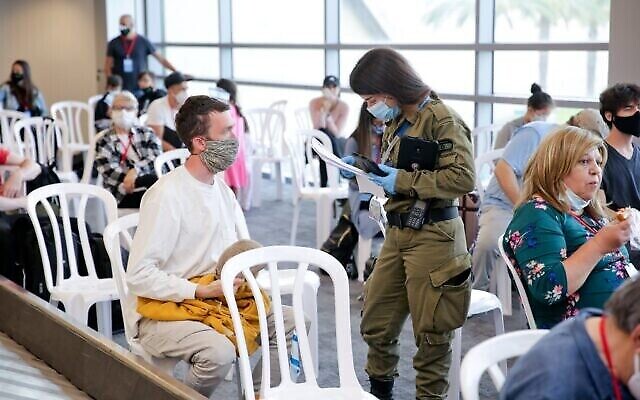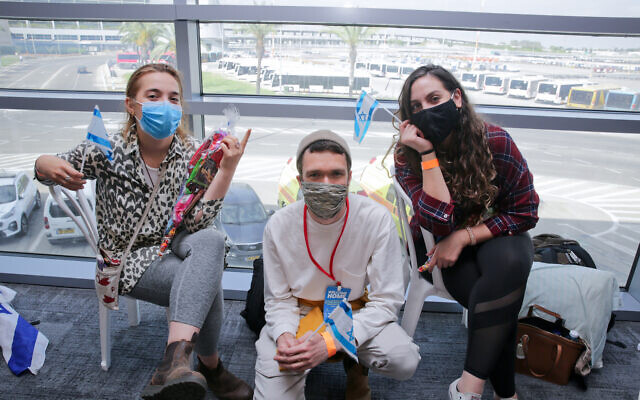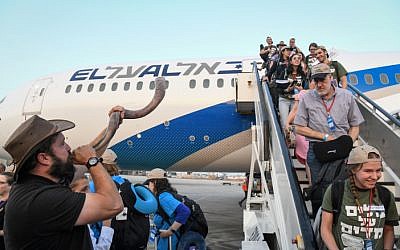New Immigrant from U.S. Diagnosed with Coronavirus After Flight to Israel
Nefesh B’Nefesh says woman had previously tested positive for antibodies, took taxi home from airport; passenger says travelers weren’t wearing masks or keeping their distance.
A new immigrant who was on a group flight with dozens of other people moving to Israel from North America has tested positive for the coronavirus, the immigration aid group Nefesh B’Nefesh said Wednesday.
The woman was part of a group of 51 Americans on a flight that landed Tuesday morning,
After she arrived at her new home, the woman received the results from the private laboratory in the US stating that she tested positive for COVID-19. Her daughter received a negative result.
The test means that the 49 other new immigrants on the flight could have been exposed to the virus.
A passenger on the same flight who wished to remain anonymous told The Times of Israel that social distancing guidelines were not maintained and that many people weren’t wearing masks.
“There was absolutely no observing of the rules, and when I said something to the staff, who were dressed in hazmat suits, they replied: ‘Welcome to Israel,’” the passenger said.
The new immigrants and other passengers on the flight were required, like all other arrivals, to spend their first two weeks in the country in self-quarantine.
According to Nefesh B’Nefesh, the woman took a taxi to her new home from the airport, did not make any stops along the way and had signed a health declaration prior to her flight. The group said the woman was feeling well.
“We were alerted in the evening by one of our immigrants (who had just arrived on this flight) that upon reaching her new home that she received an email from a private US laboratory stating that she has tested positive for COVID-19, and at which point she informed us immediately,” the organization said in a statement.
“Prior to boarding the flight, the [immigrant] signed a health declaration in accordance with the Israeli authorities’ request, and even provided a document indicating that she had antibodies to the virus. Throughout the entire flight, she wore a mask and maintained proper hygiene.”
The organization said that the Health Ministry and all relevant authorities have been apprised of the situation.
Immigration has continued to Israel — albeit at a slower pace — since the start of the pandemic, which has largely shut down air travel and forced restrictions, including mandatory self-isolation for arrivals to the country.
Last month, a team of Israeli scientists concluded that America was Israel’s biggest source of the coronavirus by far, after running genomic sequencing on the virus.
Antibody tests are different from the nasal swab tests currently used to diagnose active infections. Instead, the tests look for blood proteins called antibodies, which the body produces days or weeks after fighting an infection. Most use a finger prick of blood on a test strip.
An antibody test might show if the subject had COVID-19 in the recent past, which most experts think gives people some protection. The reliability of the tests is said to be between 95% and 98%.
They don’t say whether the person still has the coronavirus or if they have recovered.






comments